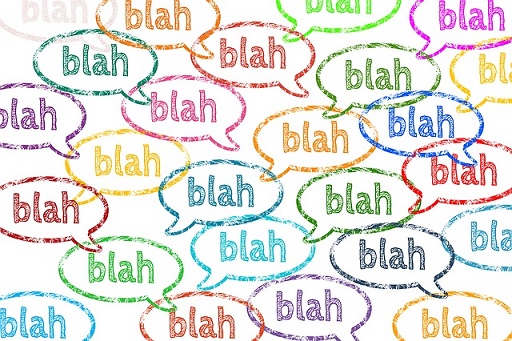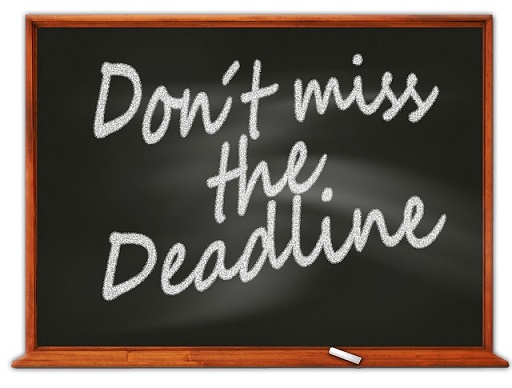
Letters of recommendation are an important part of many grad school applications. They help admissions committees learn more about your character and personal strengths than they could from just reading your transcript or resume, and they show grad schools that you have people willing to vouch for you and tell others what a great candidate you are.
But just how do you go about asking for a letter of recommendation for graduate school? How do you know who to ask? Should you tell them what to write or let them decide? In this guide, we’ll explain how to choose the best people to write your letters of rec, exactly how you should ask them, the information you should give them, what you should do after you ask them, and more! Getting for grad school letters of recommendation can be nerve-wracking, but we’re here to walk you through every step of the process.
How to Figure Out Who to Ask for a Grad School Recommendation Letter
The first step of asking for a letter of recommendation for graduate school is deciding who you want to write it. Your letters of rec are only as strong as the people who write them, so think carefully about who you want to ask. Follow these steps to figure out the best people to ask to write your grad school recommendation letters.
#1: Research Program Rules
Before you start going through your list of professors and bosses, be sure to review the guidelines each of the programs you’re applying to has for letters of rec. First, you need to know how many people you’ll be asking. Most programs require one to three letters.
Next, you need to see if those letters need to come from specific people. Some programs require your graduate school recommendation letters to be written only by professors, some want one from a professor and one from a supervisor, some want at least one recommender to work in the same field as the program you’re applying to, etc.
Figure out the requirements for each program you’re interested in and use that information to create your initial list of people to ask.
Quick side note: we've created the world's leading online GRE prep program that adapts to you and your strengths and weaknesses. Not sure what to study? Confused by how to improve your score? We give you minute by minute guide.
You don't NEED a prep program to get a great GRE score. But we believe PrepScholar is the best GRE prep program available right now, especially if you find it hard to organize your study schedule and don't know what to study.
Click here to learn how you can improve your GRE score by 7 points, guaranteed.
#2: Think About Who Knows Your Strengths Best
Next, you need to decide who among your teachers and supervisors knows you and your strengths the best. What makes a great graduate school letter of recommendation stand out from a sea of good ones is when the recommender can give specific examples to show your personality and why you’re a strong candidate for the program.
The better a recommender knows you, the more specific and in-depth their letter can be which will make it memorable to admissions committees and help convince them you’re someone they want at their school.
Now, “pick someone who knows you best” doesn’t just mean you should pick your favorite teacher or the professor who gave you an “A” in organic chemistry. You want to choose the people who can really speak to your character and your strengths. If you didn’t speak with a professor in a certain class much, you shouldn’t ask them to write your grad school recommendation letter, even if they gave you a high grade, since they won’t have anything unique or specific to write about.
On the other hand, if you, say, initially struggled in your statistics class but met with the professor to get extra help and devised a study plan that eventually raised your grade to a B, asking them may be a good idea. Even if they didn’t give you the highest grade possible, they’ll be able to write a letter of rec that has specific examples of you showing initiative, motivation, and a desire to improve, all things grad schools want to see.
Being able to tell a personal story like that in a graduate school recommendation letter is far more memorable than a recommender simply saying you were a good student or got a good grade. It’s even better if the recommender can tie those stories and strengths directly to the program(s) you’re applying to in order to better show admissions officers how well-qualified you are, but this isn’t a requirement. So remember, everyone you ask should know your personal strengths and character well and have specific anecdotes that support their statements.

#3: Consider Their Letter-Writing Capacity
Another factor you should consider is how strong of a letter-writer a potential recommender is in general and how much time they have. Sometimes, even if a potential recommender knows you well, they may still not be able to write you a great letter of recommendation because they’re overworked and don’t have time, tend to forget deadlines, or just don’t have a history of writing great letters.
On a similar note, if you’re struggling to choose between two or more recommenders, you may want to go with the person who has more experience writing letters and/or has a history of writing particularly strong letters of rec. Ask other students or recent grads if they have any advice to help figure out how different recommenders are viewed.
The most important factor is still to choose someone who knows you well, so don’t just ask the oldest professor in the department because you think he’ll write you a good letter and pass by another professor who knows you much better, but take this factor into account if you’re struggling to narrow down your list.
How to Request a Letter of Recommendation for Graduate School
Now that you know who you’d like to write your letters, it’s time for the most nerve-wracking part of the process: actually asking for a letter of recommendation for graduate school. So, exactly how do you request a grad school recommendation letter? This section breaks it all down for you.
When to Ask
Writing a strong letter of recommendation for grad school can take some time, and many people are already busy juggling many other responsibilities, so you want to give your recommenders plenty of time to write you a great letter.
Ask at least eight weeks before the earliest application deadline. This is the minimum amount of time you should give your recommenders, so if you can ask them earlier, go for it! They’ll appreciate having plenty of time to write your letter.
What to Say
If possible, you should ask for a letter of recommendation in person. It may be more difficult than asking in an email, but asking in person shows professionalism and maturity, two more qualities your recommender can discuss in your letter! However, asking in person isn’t always possible, such as if your recommender no longer lives or works near you. In that case, you can ask them over email and offer to chat with them on the phone if they’d like to have a more in-depth conversation.
Asking for a letter of recommendation can be intimidating, but remember that the people you ask have likely been asked to write recommendation letters many times before, and if you’ve established a good relationship with them, they’ll be happy to write you a letter.
You should prepare to ask your recommender when you know she has some free time. This can be after class, during office hours, or you can send an email asking if they’re free to meet with you. Catching your recommenders when they’re hurrying to a meeting or on their way to teach isn’t a great time to ask them since they’ll be rushed and likely not paying full attention to you. Make sure to ask when you know they have a few minutes to spare.
It can oftentimes help to prepare what you want to say ahead of time, especially if you are nervous. Preparing will help you sound more confident and ensure you say what you want to say. When asking, being by telling them you are starting to apply to grad schools, mention something you enjoy about their teaching/work style or something they’ve taught you, and then finish with “Would you be willing to write me a strong letter of recommendation for grad school?” Specifically requesting a strong letter ensures that if they agree, they will write you a glowing letter.
At this point, they’ll likely say yes, then you can thank them and either give them the additional information they need now (if they have time) or tell them you’ll send an email with all the info they need to know. That’s all there is to it!

What Information to Give Your Recommenders
The hard part is over now, but you still need to make sure your recommenders have everything they need to write you a great letter of rec. Below are the main things they’ll need.
- Information on how to access recommendation forms/where to send them
- Deadlines for each program they’re writing a letter for
- A copy of your resume
- Brief information on the types of programs you’re applying to
- A list of any specific achievements or personal qualities you’d like them to include
It can be helpful to set up a meeting with your recommender to go over all this information and make sure you’re both on the same page. The more your recommender knows about you and the programs you’re applying to, the more specific their letter will be which will help make it stronger and more memorable to admissions committees.
Reminding Them of Deadlines
You’ll likely need to remind at least one of your recommenders of approaching deadlines to ensure all your letters are sent in time. Many students are hesitant about this, since they feel it’s pushy or rude, but a brief reminder can be helpful. In fact, some recommenders may even ask you early on to remind them!
If a deadline is a week or two away and a recommender still hasn’t completed their letter, drop by their office or send them a quick email reminding them of the deadline and thanking them again for taking the time to write you a letter.

Following Up With Recommenders
Once you’ve asked your recommenders to write you glowing graduate school recommendation letters, you don’t just get to forget about them and ride off into the sunset. Following up with recommenders is both the polite thing to do and helps keep the door open for future correspondence and the opportunity to ask for other letters of rec down the road.
After the application deadline is passed, send a thank you note to each of your references, thanking them for the time they put into writing you a letter. Since your recommenders likely know you well enough to have a vested interest in your future, it’s also a good idea to send them another email after you’ve decided which program to attend so they know where you end up going.
Key Takeaways: Asking for Letters of Recommendation
- Grad school letters of recommendation are an important part of your application since they give admissions officers a deeper look into your personality and strengths.
- The first step to getting a graduate school recommendation letter is to decide who you want to ask. Your recommenders should know you well, be able to describe specific strengths and anecdotes about you, and have the time and ability to write a truly glowing letter.
- When you ask your recommenders, you should always try to ask them in person. Be clear that you’re looking for a strong letter of rec, and, after they accept, make sure they have all the information they need to write and submit your letter.
- Lastly, don’t forget to follow up with your recommenders and thank them for helping you out. It’s also thoughtful to let them know which program you end up attending after you decide.
- That’s all it takes to get great letters of recommendation for graduate school!
What’s Next?
If you’re applying to grad school, you’ll likely need to submit a resume or CV as well as letters of recommendations. Read our guides to learn how to write a top-notch grad school resume or CV.
Want to improve your GRE score by 7 points? We have the industry's leading GRE prep program. Built by world-class instructors with 99th percentile GRE scores, the program learns your strengths and weaknesses through machine learning data science, then customizes your prep program to you so you get the most effective prep possible.
Try our 5-day full access trial for free:
Want to raise your GRE score before you submit your grad school applications? We have a guide filled with GRE tips and tricks to help you score well on test day.
Grad school can be expensive. Check out our guide filled with great grad school scholarships to help yourself get some money for grad school!
Ready to improve your GRE score by 7 points?
We've written a eBook about the top 5 strategies you must be using to have a shot at improving your GRE score.
Download it for free now:

